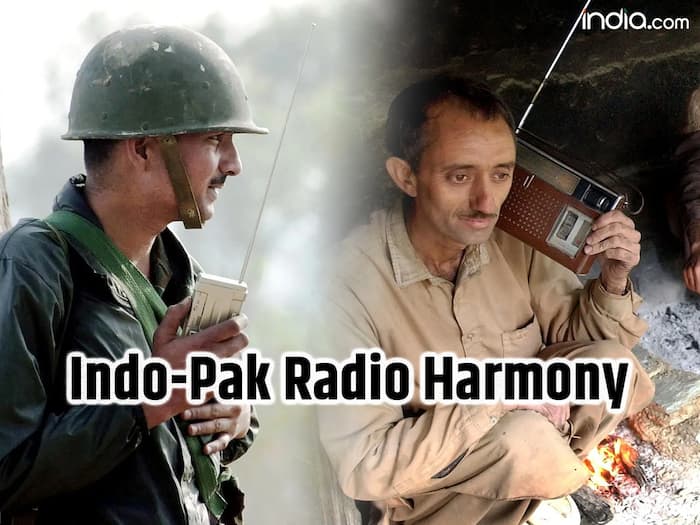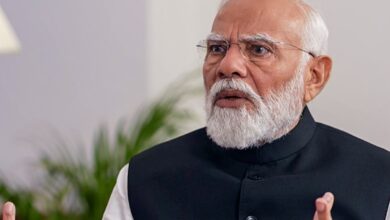Radio stations across both countries continue to broadcast content that resonates deeply with their listeners, proving that the political rifts have little bearing on the cultural and emotional bonds shared by the people.

Amritsar: In an era where digital platforms are rapidly transforming the landscape of communication, the radio waves between India and Pakistan continue to serve as a timeless bridge, connecting hearts and transcending the barbed wires of geopolitical boundaries. This unique relationship between listeners across the Indo-Pak divide offers a testament to the enduring appeal of radio as a medium of cultural exchange, unity, and mutual understanding.
Before the partition of British India in 1947, radio broadcasting was a colonial affair, with the British government at its helm. The geopolitical schism that followed birth of two nations with their own state-run broadcasters: All India Radio (AIR) for India and Radio Pakistan for Pakistan. Despite this division, the shared languages, cultures, and musical heritage of the region persisted, creating a unique space for radio to become an instrument of unity.
Radio stations across both countries continue to broadcast content that resonates deeply with their listeners, proving that the political rifts have little bearing on the cultural and emotional bonds shared by the people. A silent yet vibrant community of radio enthusiasts thrives on either side, finding solace in the familiar tunes and voices that float through the airwaves.
The border regions, home to Punjabi-speaking populations in both countries, epitomize this connection. Here, people often have familial and cultural ties across the border, making radio broadcasts from the neighboring country a cherished link to their heritage.
In India, an impressive 57.4 million individuals, making up 4% of the population, tune into the radio regularly. Pakistan mirrors this trend with about 5 million of its citizens, or 2.35% of the population, engaging with radio content daily. These figures highlight the medium’s lasting popularity and its role in knitting a shared cultural fabric.
Stories of listeners like Ashar, a driver from Lahore, encapsulate the personal connections people have with radio. Ashar’s joy upon hearing his song request on an Indian FM channel during a hectic day signifies more than a simple musical preference—it symbolizes a moment of transcendence, a brief escape where borders blur in the backdrop of melody.
The radio landscape in both countries is robust and dynamic. Pakistan boasts 175 commercial and 60 non-commercial stations, while India’s scene is equally vibrant, with 371 private FM stations and 372 community radios. This diversity caters to a wide array of interests and demographics, further enriching the cross-border radio experience.
Radio personalities play a pivotal role in this narrative. Heer, a radio jockey from Chandigarh, and her counterparts in Pakistan foster an environment where listeners from both countries celebrate commonalities, whether it’s through music requests or shared celebrations. Such interactions are emblematic of the potential radio holds as a platform for cultural diplomacy.
The stories of Dr Salil Arora from Amritsar and Prashant Sehgal from Delhi illustrate how radio serves as a window to the world, offering insights into the lives and perspectives of neighbors across the border. Through programs that blend music, news, and dialogue, listeners are invited into a shared space, free from the constraints of political discord.
Advocates for cross-border understanding, like Imtiaz Rasheed Qureshi of the Lahore High Court and radio jockeys such as Adeel Azhar, envision a future where radio can further facilitate dialogue and cultural exchange. Their efforts underscore the belief that radio has the power to bridge divides, fostering a sense of unity and common heritage.
The allure of radio, with its immediacy and intimacy, remains unparalleled. It transcends the digital divide, bringing stories, music, and voices to life in a manner that is both personal and universal. Radio jockeys, seen as the bearers of global brotherhood, continue to advocate for peace and mutual understanding, using their platforms to unite listeners beyond borders.
As digital platforms evolve, the essence of radio broadcasting—as an art and a means of connection—remains intact. It’s a testament to the medium’s resilience and its capacity to adapt, proving that in the hearts of listeners across India and Pakistan, the radio remains an enduring symbol of shared experiences, memories, and hopes for a harmonious future.
In conclusion, the invisible threads woven by the radio between India and Pakistan narrate a story of hope, resilience, and commonality. Amidst a backdrop of historical divides and political tensions, radio stands out as a beacon of unity, demonstrating the power of cultural content to bring together disparate communities in celebration of their shared humanity.
Source link



